|
I can tell you my cocktail consumption has definitely gone up by 169% since the start of the pandemic. People are spending more time at home and entertaining themselves with various edibles that aren't so great for animals. Luckily people are home to notice quickly and call poison control. It's always better to prevent ingestion, but if your pet gets into something and you're worried, contact poison control RIGHT away, time is of the essence to prevent or minimize absorption of toxins.
Get this number in your phone's address book. There is a cost, it is worth it. Pet Poison Control : 855 764 7661 Once you've determined if your pet needs medical attention, you'll have a case number to provide to your local veterinarian who will be able to access the recommended treatment options. We know a lot as general practitioners but we'll often need to access the recommended therapies and doses for a specific type or form of toxin and if you do this before you come in, we can work faster and more efficiently to minimize the deleterious effects of the ingested material. Clients often ask me about pet insurance. If they don't, I try to remember to bring it up.
There are dozens of talking points I need to fit into the time allotted for an appointment, and often I forget but we all know insurance is there for the unexpected problems. Unless you are financially prepared to take on these emergency expenses, consider looking into the predictable expense of carrying insurance for your pet's health. Get it if you can afford it. Get it if you can't afford an emergency $4,0000 surgery and medical care because your puppy ate a pine cone. Get it if you can't afford a $900 emergency wound repair because your cat got injured in a turf war with the local tom. Get it if you can't afford the $5,000 orthopedic repair for your chubby lab that tore his ACL, or if you can't afford the $300-400 dollars a month cost for having a dog that's allergic to every pollen grain or diet in existence. You are solely responsible for your pet's well being, and that includes having a financial, physical, and emotional budget. Veterinarians are brought in by you to become part of your pet's wellness team, but ultimately, you are responsible for deciding on, and paying for, the level of care your pet will receive. Veterinarians have the skill and drive to do everything to help your pet, within the limits of our profession, facilities and/ or personal skills. Being a veterinarian is not a volunteer position, it is a highly educated, paid profession, and these services come a with a price that you as the pet owner are solely responsible for, so why not secure some financial help? Money.com just reached out to me to let me know they've recently written a review on some of the more popular pet insurance companies out there. Here's their review https://money.com/best-pet-insurance/  At A new mandate in California makes important points. Putting aside the details of the case that led to the law ( the death of a dog in an attempt to improve her health) the issues that pop into my head include: 1. Information sharing should always be standard of care. I try my best without being overwhelming but there are so many liabilities! Case and point: tv drug commercials spend more time on disclaimers than any other content. How many owners will absorb all this info and hold themselves responsible if they don't follow the directions on both administration and patient care ? Sometimes I get told point blank "Doc, I don't want to know." That's hard. 2. How many people will actually read the 4-6 pages of drug notes that we will staple to the medication? Is that enough? It seems to be in human medicine. At least to cover legalities. 3. The public is demanding that veterinary medicine be brought up to par with human medicine: Yay! But, are society and individuals ready with the costs of vet medicine joining the ranks human medicine? Pet parents aren't just paying for the value of a vet's knowledge, their time, treatments and procedures. Costs have to include everything that architects the capability of vets existing to help pets ( facilities, office supplies, business expenses, insurances, licensing, support staff, device, maintenance, continuing education, inventory, etc) Get on board with pet insurance. No Obamacare....uh, Bo&Sunnycare, for pets, yet. 4. DVMs/VMDs/BVsc want to be as respected as their MD counterparts given that they have the same education (prior to specialization). Do our practice habits (and guilt) prepare us for the increased financial and time costs and having to pass these costs on to our clients? Where does our profession stand on the return on financial, physical and emotional investment ? The most important point is that vets and pet owners need to have clear communication: tell vets what symptoms your pet has, tell them about your gut feeling, tell them about your financial, emotional, time, and physical budget. Don't withhold information because you are afraid vets are going to recommend more testing or expensive medication. Both sides need ALL the information before an informed recommendation or decision can take place. Recommendations are not marching orders. They are recommendations, and they have their hierarchy of importance. The bottom line is there are always options ( some which my be less favorable than others, but remember the goal: to relief pain and suffering- see the Five Freedoms blog entry for December 2017). You are a team. All voices matter. Take responsibility for the things you can, can't, will or won't do for your pets. It's ok- everyone has their point of view and limits, vets included. Ask questions, and let your vet know what type of communication you need. When things don't turn out right in our mind, our emotional cycle often starts with fear, anger, and blame. That can set precedence for complete breakdown of communication and civil resolution if the parties involved refuse to take a step back to accept mediation and understand the most realistic remediation. Malicious intent and purposeful neglect is rare in our profession. Veterinarians are human, just like everyone else. We often lead with our hearts, for better or worse. The most important concept is to understand that we all have limited control over biology and being alive is a risky thing by nature. Be a team together. Medicine is the marriage of science and the intuitive art of wooing nature, not controlling it. Ah, the joys of life: blue skies, romping in the woods, running in the rain, bounding in fluffy snow, greeting neighbors, racing your buddies, performing at your best, chasing real or imaginary mice, filling your hungry belly, a cold drink after herding your beasts (sheep, cats, kids) or simply snuggling on the couch. Animals would like to live a simple life and they have basic yet important needs.
As a veterinarian, I always keep the Five Freedoms in mind when I am offering preventative care or treating an illness in my patients. Ultimately, ensuring these freedoms are what drives our profession to care for the animals of the world. The Five Freedoms:
Preventive care, treating illness, managing conditions, providing humane and ethical medical advice is how veterinarians, veterinary nurses and technicians and the staff at veterinary clinics help you keep this promise to the animals you've taken into your custody. When you seek our services, achieving these goals is what drives the recommendations we make. Ask yourself how these freedoms address both the general needs of your animals, but also the specific quirks and personality of your each of your furry, hairless, slick, slimy, or feathered friend. Your veterinarian, walker, trainer, pet sitter, family, friends, neighbors and your local, state and federal community all play a part in helping your care for your pet, so if you aren't sure how to achieve these freedoms, or you suspect a problem with your pet- it may be because one or more of these simple needs isn't met. What's missing may be subtle or non intuitive to the non trained professional. Ask for help! That's what we're all here for. Hallow
Dear Berkeley Dog and Cat Hospital, I came for four months and then I stuck around becaused I loved it. Thank you for the amazing 1.5 years of learning and doing, searching and finding, cutting and suturing, panic and calm, comfort and craziness, beginnings and ends, laughter and tears, all within the spirit of teamwork, support of each other, commitment to our patients and our clients and the desire to do no harm. We are colleagues, we became friends, we did it in scrubs, we did it in hiking boots, we even did it in Halloween makeup. We encouraged each other but we weren't afraid to set limits, we upheld and we Resisted. Thank you to the troops on the back and the front lines, the managers and the Customer Service crew, for the kennel team for being vigilant. Thank you to the amazingly dedicated, selfless technicians who day in, night out, are there to care for the beloved creatures that need us. Special thanks to our pharmacy technician Debbie- your attention to detail and your efficiency saves lives. A very special shout out to my personal doctor's assistants, Monica, Corinne and Allison, who have kept me going (both into the correct exam rooms and towards sanity.) Here's to the outstanding doctors: my bestie at work and at play, Sip; my office roomies, Leah and Tom,( How much smarter we are for constantly asking each other everything!); the Big B for setting the Spirit of BDC; Lady B for being kind, caring and accommodating; Little Wang for being a Big help; Jeff for being my labwork partner in crime; Rebecca for lifting the spirits and laughter; Nancy for being the voice of reason; YL for the Boba escapes; Rob for pulling teeth (not ours!), JJ for joining the crew, Dr. Hark for the constant source of reptile hilarity, Christina for urgently saving all of us and the brave Emergency doctors Moi, Alina, Carla and Rob, who in the line of duty, forgo sleep and daylight to allow the rest of us to go to home and go to bed. Thank you Mark, Dave and Nathan for coming out to us with your expertise, support and humor. Thank you Phillip and Kim for wielding those scalpels so expertly, at all hours. Thank you to PETS and BAVS and all the specialist in the area that have taken our sickest. Thank you to all the pet parents of the east bay who brought us their special friend, and thank you to the many animals who have touched our hearts. Here's to the California spirit in all of you, thank you for sharing. May we meet again soon, (Let's check the weather forecast and see when Boston is due for its next Nor'easter, you'll know when I'm available to come out to CA.) The atmospheric rivers have been a blessing for drought suffering northern California, however it comes at a price for our canine population- leptospirosis is rearing its ugly head. Local news have reported on a patient in San Francisco that died from this infection. I just diagnosed a patient three weeks ago in Berkeley. This bacteria has its preferred hosts, in NorCal that's mostly rodents and raccoons, and dogs are susceptible to infection which tends to infect eyes, lungs, liver and kidneys, and can lead to kidney and/or liver failure. There is a vaccine for this disease, however, as is often the case in biology, there are multiple strains and the vaccinations may not completely protect pets. Still, some protection is better than none in this potentially deadly infection. Treatment requires rapid identification and antibiotic therapy- some of the damage may not be reversible. The additional threat to public health is that this infection is zoonotic, meaning it can be transmitted from to animals and people, mostly through infected tissues, ingested in predation and body fluids, such as urine. Check your pet's records, and if you don't see any history of "lepto" vaccine, often included in the Distemper combination vaccines (DAPP + lepto or DHLPP are some common shorthands for this vaccination), make an appointment to discuss it with your vet.  It is often in our nature as " pet parents" to recognize human characteristics in our pets. The marketing of human food has made us aware of the variation in quality and sourcing. The pet food industry has also caught on, for better or worse, and is heavily marketing the terms that catch our eye and make us feel like we are making healthier choices, such as "natural", "organic", and "gluten free". It would be great if these words had more meaning than getting you to pick one product over another but, sadly, these are terms often not regulated. Here's an article to add to my June 2015 post that further brings awareness to what you feed your pet. The most important message being that our animal's dietary requirements are not the same as ours. As much as you may think your TomCat, with his missing tooth, battle scars and constant need to show off his silly acrobatics resembles your scrappy and hilarious Uncle Ben, it's important to remember that our cats and dogs (and of course or scaled and feathered friends too) are physiologically very different than we are. Just because we may share the characteristic of having fur on the outside, or similar mannerisms, as our pets, it doesn't mean our insides work the same- animals need a diet that works with their physiology, not one that meets any personal cultural perceptions of what seems palatable: Organ meets aren't very popular in American diets, so often those are labeled as by products. That delectable liver mousse paté you had at the French Restaurant last week would fall under that category, as would the Spanish delicacy known as butifarra negra, and don't forget the Scottish/English haggis! Oh, and head cheese! Don't be deceived by perception, be convinced by nutrition!
If you're a dog, risqué music videos and poor social choices are the least of your toxicity problems. We know dogs have a less discerning palate than a lot of other species, and sometimes they're just willing to eat anything that even resembles food. I could tell you stories of the toxicity case we've seen at Berkeley Dog and Cat,....but I think I'll leave you with this fantastic link to dangerous foods for your pet by the great Dr. Justine Lee, founder of VetGirl On the Run, and critical care and emergency vet extraordinaire. (Scroll to get to the interactive "Ruff for your dog's health" about halfway down the page, there's a lot of advertisement above and below, sorry about that but it's totally worth it! )
Don't forget, if you are concerned that your pet may have ingested a toxic plant or product, or you suspect signs of toxicity, contact your vet right away, along with the ASPCA Poison control center. I've done it myself when my cats got a bit too close to some suspicious flowers in my California rental home last month. I was hoping to be smug about the nice weather here in California after the last winter we had in Boston...but according to my friends back "home" the east coast has had quite a flux between bitter winter and spring like weather. So I wonder if the tick season isn't really going to go away for too long or that the ticks will be worse than ever. Here in the Bay area, the ticks are not as much of a threat....although like the microclimates there are microenvironment differences that make driving a few hours towards the mountains tick country, while here in Berkeley, it's less likely to see pets on tick preventatives. Below is an infographic collaborative project sponsored by Carrington College in Sacramento, CA.
Just a few "editor's notes: I don't tend to recommend tweezers (or fingers) to remove ticks. If you squeeze a ticks body, it can regurgitate its gut contents into the tissue that it's attached to, which is where the bacteria that causes many tick borne diseases live (like Lyme). I tend to recommend tick keys or other such little tools that are sold to hook behind a tick head and remove them steadily from their meal. IF you accidentally leave the "head" (mouth parts) in the skin, it is often best to leave it alone as digging after it can cause greater damage. Ask your vet if you are worried that the retained part of the tick in the skin, you can always have your vet check it out if the area starts looking angry rather than healing on its own. Also, it it not routine for vets to check ticks for infection, we focus more on testing our patients at the proper time interval or if symptoms are present, but there are labs available for testing ticks for various infections they could be carrying. Enjoy, and thank you Audrey! Click on the image
As I start my California sabbatical this season, I am determined to absorb the goodness of life and the positive attitude that the constant sunshine offers. Stress is a factor in all of our lives and although triggers will start a cascade of reflexes, our minds can offer us the control to make stress our friend. Here's a Ted talk to start off 2016 in a stronger, healthier way:
Click HERE to listen to Kelly McGonigal's Ted talk about how to make stress work for you or watch it on this page below: |
AuthorAdventurously spirited. Grammatically Dubious. Enthusiastically Sincere. Archives
October 2020
Categories |
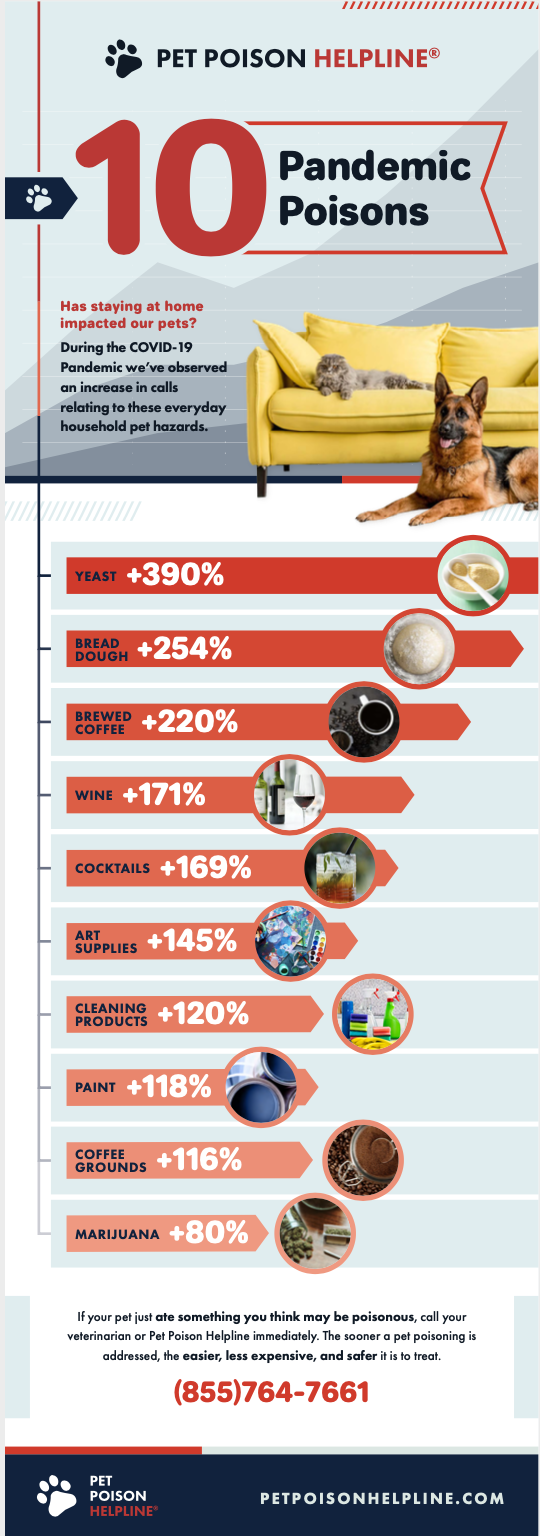
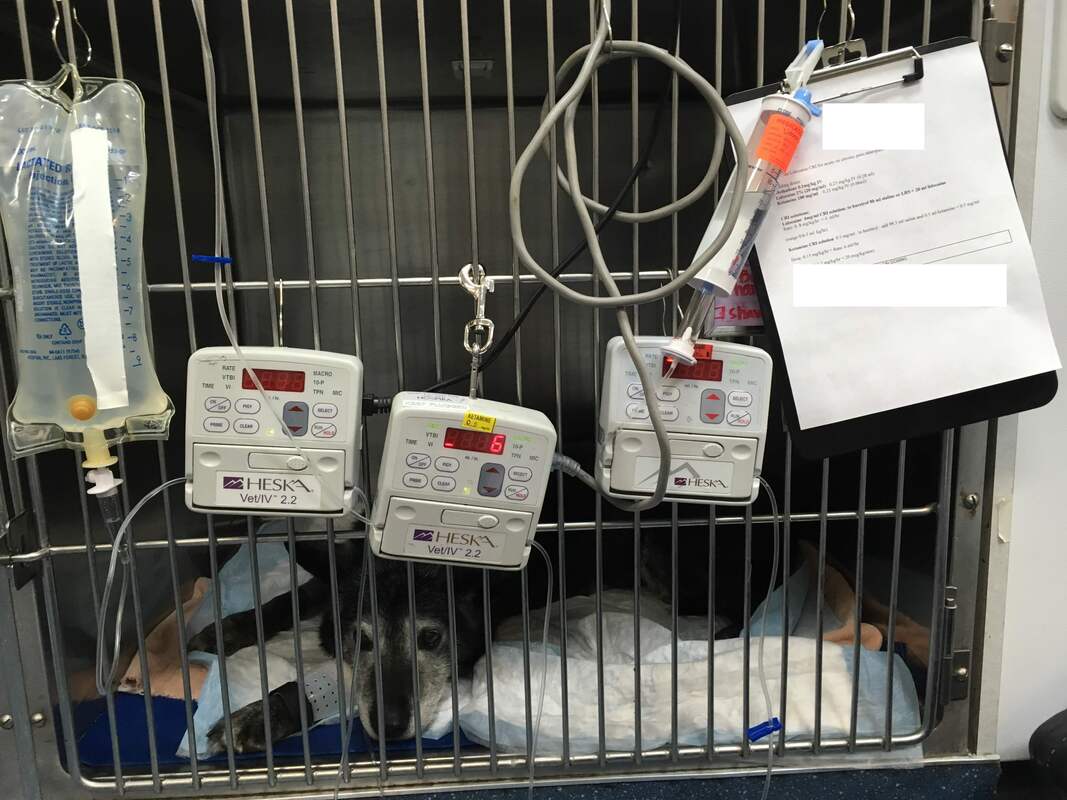
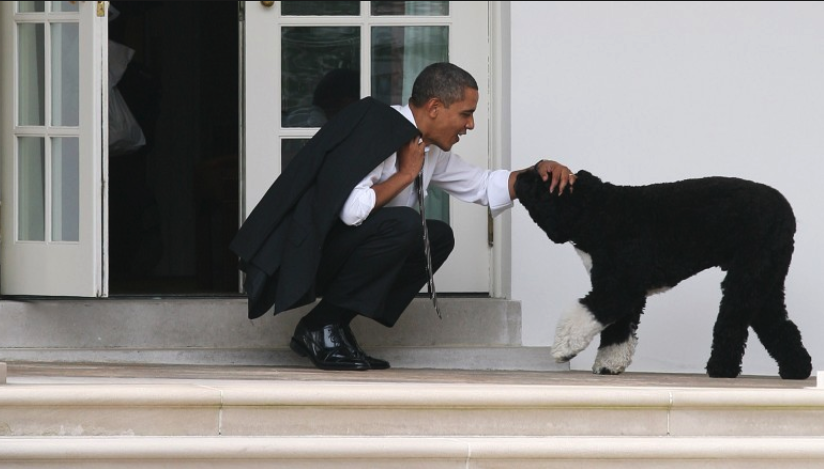

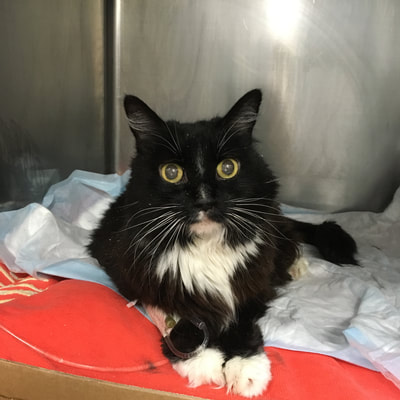
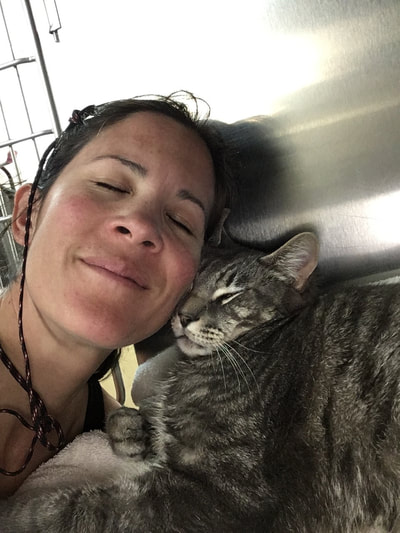
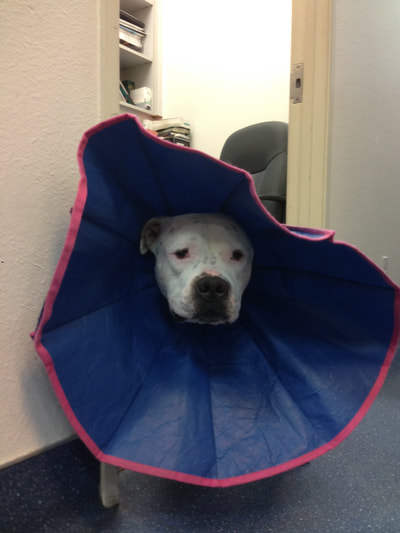
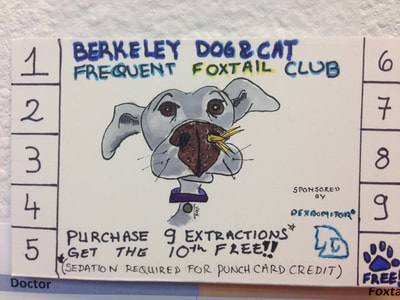
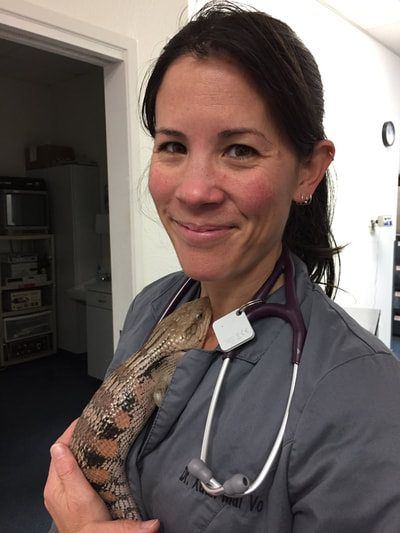

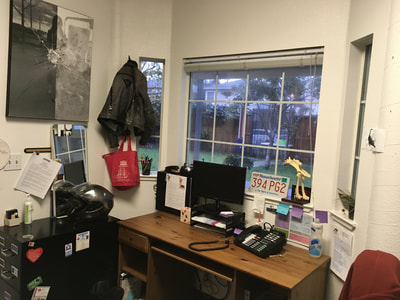
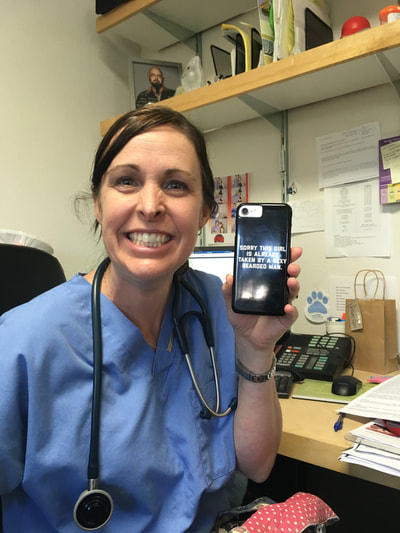




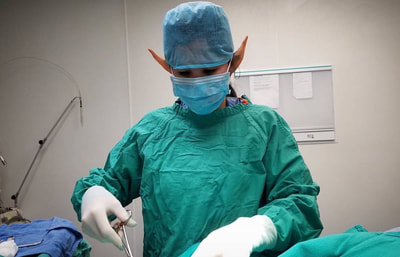
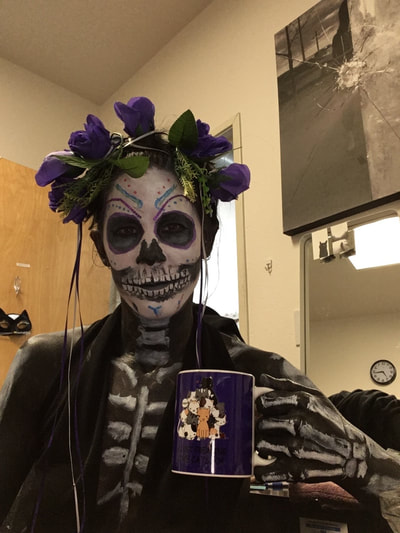


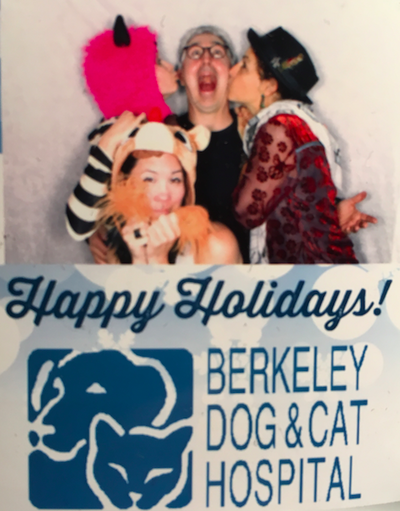
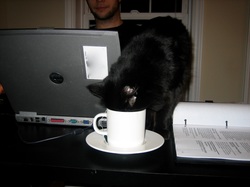


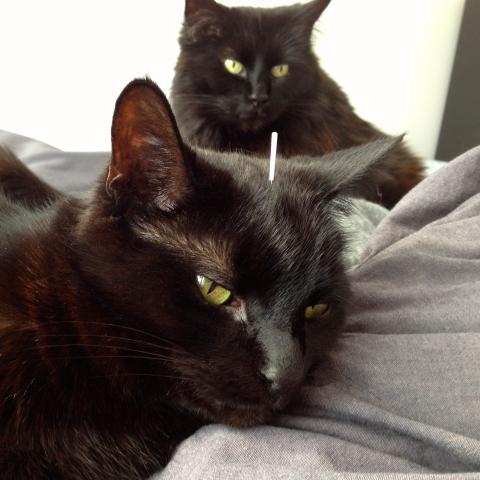
 RSS Feed
RSS Feed